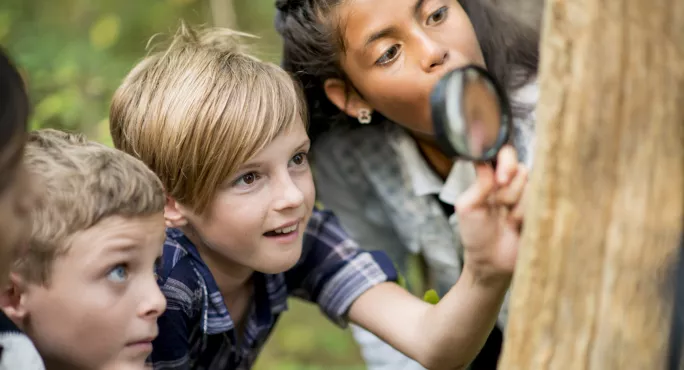Every school will have a fieldwork site within easy reach where pupils can, for example, experience different weather conditions; visit a green space, woodland, river or stream; explore urban and/or rural land use, local amenities and housing; and engage with a variety of people.
But when compared with trips to iconic glaciated, coastal or metropolitan landscapes, the value of local fieldwork can be underplayed. Amid the current pressures of finances, time and the curriculum, however, local fieldwork that is low-cost and high-impact deserves to be celebrated.
Low-cost geography fieldwork ideas
So, with a completed risk assessment, waterproofs and clipboards at the ready and your local Ordnance Survey map to hand, here are some fieldwork ideas that you can use in your local area:
Wind direction and speed
You will need a few bubble tubs, compasses, tape measures and stopwatches. Your students can use these to track the compass direction that bubbles are blown in by the wind and see how long it takes for a bubble to travel 10 metres. Some maths will enable you to calculate the wind’s speed in kilometres per hour and you can also compare your results with Windy’s live feed of your local wind speed and direction.
The rocks around me
Your local geology might not always be visible, although the BGS Geology Viewer will give you virtual access to your underlying geology. To make geology more explicit, a guided local walk can reveal how different types of rocks are used. You may find slate roof tiles, marble or granite cladding outside banks, flint wall facing, granite pavement edging, gravel or pebbles as garden decoration, or limestone building stone or statues - including Portland limestone war-grave headstones.
More from Steve Brace:
How accessible is my local high street?
Pupils can investigate how accessible their local high streets are by undertaking a survey based on different people’s perspectives. Are disabled visitors or those with young children catered for by Blue Badge or parent-and-child parking spaces, for example? And how might tactile pavements help blind visitors to better navigate their way around the area?
National Education Nature Park
Schools can follow the lead of geography teacher Rob Chambers and get their schools involved in the National Education Nature Park. This programme puts nature and climate at the heart of education by asking pupils to investigate and map the biodiversity they can find in their school grounds. Using the introductory mapping app developed by Esri UK’s education team (which is almost as easy to use as a supermarket self-scanner) ,your school’s results will be visualised and also combined with all other schools to create a national map of educational biodiversity.
This focus underpinned the Geographical Association’s National Festival of Fieldwork, which took place throug June and offered primary and secondary schools the chance to share and promote their fieldwork (see #NationalFestivalofFieldwork for inspiration).
These four approaches, plus the many other ideas shared through the Festival of Fieldwork, will help make your local area a perfect setting in which to develop your pupils’ geographical skills in the real world.
Steve Brace is chief executive of the Geographical Association
For the latest research, pedagogy and practical classroom advice delivered directly to your inbox every week, sign up to our Teaching Essentials newsletter





